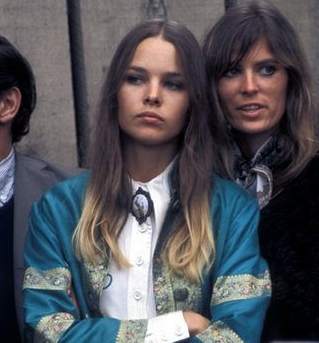The ’70s is a revered time in cinema history because so many great films came out of that fabled decade, and when looking back, the studio executives of the time often get as much acclaim as the filmmakers.
It was a different era of people who ran a major studio, and gave movies the greenlight. Executives understood movies, actually liked movies, and actually liked the filmmakers. Go figure, right?

With the passing of John Calley, who ran Warner Brothers and Sony, it’s remarkable to look at the long list of terrific films he shepherded, and how revered he was by the filmmakers he worked with.
As an associate producer his credits included Elia Kazan’s The Americanization of Emily and The Cincinnati Kid, and he also produced Catch-22.
In Calley’s Warner years, Woodstock, Dirty Harry, Enter the Dragon, A Clockwork Orange, Mean Streets, The Exorcist, Deliverance, All the President’s Men, Blazing Saddles, Superman, and The Shining were all made on his watch.
At United Artists, The Birdcage and Leaving Las Vegas were made during his tenure, and he also gave the long awaited go-ahead to the Spider-Man series at Sony.
Mike Nichols, director of The Graduate and Catch-22, was quoted on Deadline: “As a studio head he was unfailingly supportive and didn’t try to do the filmmaker’s job. When he believed in someone, he trusted and supported him and when very rarely he had a suggestion it was usually a life saver.”
Clint Eastwood told Variety Calley was “one of a kind,” the studio executive along with Frank Wells that brought him to Warner Brothers, “and I’m still next door to his office after 32 films.”
“John Calley was the one directors liked,” recalled Nessa Hyams, who was head of casting at Warners. “John was smart, charming, witty, seductive, and he believed in these people, he really trusted them. It was a great experience working at Warner Brothers I have to say, I’m sorry I left there.”
A lot of executives today are just as clueless as the movies they make, and the stupidity of today’s films reflects what’s missing between their ears, and how much they’d rather work in any business but the movie business. Film executives were a lot smarter in those days, their tastes didn’t go down to the lowest common denominator, and they didn’t cynically think the audiences were stupid enough to swallow anything they’d shovel them.
We also don’t have the crazy character heads of production like we had back then, who flew by the seat of their pants, and took risks. These days, everyone wants to be a player, but nobody wants to roll the dice, and in many ways, they can’t because movies cost way too much to take chances. Back in the day, the average movie didn’t cost $60-100 million, and you could take risks with smaller budget films.
Several years ago I interviewed producer Thom Mount, who was also an executive at the glory days of Universal when the company turned their movie division around, and made many big hits, including The Sting, and Jaws, as well as acclaimed work like Coal Miner’s Daughter, and Missing.
When I remarked on the great run the studio had, Mount said it was because “There were no stupid people working here,” and the company was a lot smaller. The film division was also basically three or four people, much like Paramount back in the day. There weren’t enormous committees everyone had to cut through to get a decision, another problem with major studio filmmaking today.
Calley’s passing, and the passing of ’70’s superagent Sue Mengers who represented many of the best actors and filmmakers of the decade, is especially sad in that the era a smart, and talented executive could make great movies is now one step further behind us, but his legacy of great work speaks for itself, and will live on for a long time to come.






